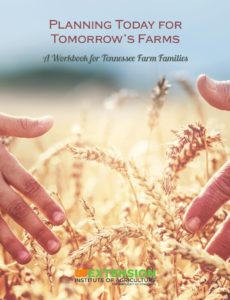On February 16, 2010 twelve organizations and Governor Phil Bredesen officially formed the Tennessee Farmland Legacy Partnership with the purpose to serve as an authoritative resource, to provide information and assistance, and to encourage both farm level and community planning that promotes the preservation and viability of working farms in Tennessee.
The Tennessee Farmland Legacy Partnership seeks to raise awareness among farmers and other landowners, government officials including community planning and zoning officials, developers, business and civic leaders, media and citizens as to the values, needs and opportunities for farmland preservation in the state. The Partnership will also direct farmers and community officials to the technical and financial programs offered by organizations and agencies related to farmland protection.
Why was it formed?
Farming in Tennessee is a $3.1 billion industry at the farm gate. Agriculture, including forestry, generates more than $60 billion in total economic activity and provides employment for nearly 500,000 Tennesseans. Agriculture is the main economic driver in rural communities and every farm dollar turns over multiple times in the local economy.
Agriculture not only impacts the cost of food, but farms and forest also contribute to the well-being of our communities in the form of green space, property values and tourism. Consumers value knowing where and how their food is produced and local farms provide assurance of a safe, abundant and affordable supply.
Finding balance among competing land uses in our communities is vital to the future of our state’s economy, health and quality of life. Each year, Tennessee loses an average of 1,300 family farms and 100,000 acres of farmland. Much of this land is converted to other uses and is taken out of agricultural production, sometimes unalterably forever. Farmers often find it difficult to pass their farmland to the next generation due to a lack of interest in farming by other family members, a lack of information on succession planning, or due to economic and development pressures. The future of Tennessee agriculture depends on the ability of exiting farmers to transition, without losing valuable farmland, to new generations of farmers who need access to affordable and productive farmland.
Who are the partners?
- Cumberland Region Tomorrow
- Foothills Land Conservancy
- MTSU Center for Historic Preservation
- Tennessee Department of Agriculture
- Tennessee Department of Economic and Community Development
- Tennessee Department of Environment & Conservation
- Tennessee Department of Tourist Development
- Tennessee Farm Bureau Federation
- Tennessee Wildlife Resources Agency
- The Land Trust for Tennessee
- The University of Tennessee Institute of Agriculture
- USDA Natural Resources Conservation Service (Tennessee)
- USDA Rural Development (Tennessee)
